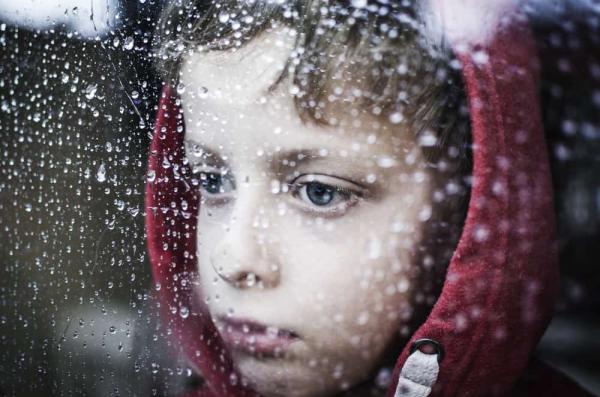
In a 2010 Monitoring the Future survey, prescription drug and over-the-counter drugs follow alcohol, marijuana and tobacco as commonly abused by 12th graders. Among High School seniors, 54 percent claim that opioid drugs (like Vicodin) are easy to obtain. As parents, we need to be aware of what prescription drugs we have and the type of prescription drugs our children are prescribed. (See Facts on Prescription and Over-the-counter drugs). We also need to be aware of what ought to be done when prescription drug abuse is recognized, how to support youth in overcoming addiction, and what we can do for ourselves in understanding the nature of such addictions.
Understanding Addiction in general
When a person is referred to as an addict, it is because they no longer have the ability and control and have developed a "craving"� or "appetite"� for the particular substance. In a sense, they have developed a dependency on the substance. Without it, they experience withdrawal symptoms.
This development of an "appetite"� for the particular substance comes in two forms: tolerance and withdrawal. Tolerance develops where the brain and physiological make-up of an individual adjusts to the particular levels of substance being consumed. For instance, a person may get a "buzz"� off two beers until their body builds up an alcohol tolerance. Thus, they increase the level of consumption in order to experience the "buzz"� or "high." Withdrawal, as previously mentioned, occurs when the body is denied the particular substance for a time and the person's behavior, physical response, and emotional cognition signal that it needs the substance in order to sustain itself.
Thus, parents should familiarize themselves with how addiction works and recognize when there are potential signs of addiction:
-
Neglecting responsibilities - for youth, this includes neglecting their homework (i.e., a student who is known to get good grades suddenly is failing classes, not turning in homework, or even neglecting chores).
-
Unnecessary risk taking while "high"� or "intoxicated"�
-
Causing legal trouble
-
Relationship problems
These are just a few signs that provide some helpful clues as to whether or not a youth is engaged in prescription drug abuse. Additional signs ofprescription drug abuseinclude excessive mood swings, increase or decrease in sleep patterns, poor decision making, appearing to be high, unusually energetic or revved up, or sedate.
What to do when there is prescription abuse and addiction
The last thing a parent should ever do is employ "tough love."� The addict does not need to be shut out, but embraced, understood, and given solid recovery support. This is true for parents who have teenagers that are addicted to prescription drugs. This means we should not exile ourselves in denial, but confront the issue head on with unconditional love. Showing love, care, and compassion, along with being empathetic towards your teen can help them recognize the addiction. Together, parents and teens can seek out counseling to overcome addiction and make a full recovery. In fact, in the article (already linked to previously): Drug Abuse and Addiction - Signs, Symptoms, and Help for Drug Problems and Substance Abuse, there is a list of five things Parents can do:
Lay down rules and consequences
Your teen should understand that using drugs comes with specific consequences. Never make hollow threats or set rules that cannot be enforced. Make sure your spouse agrees with the rules and is prepared to enforce them.
Monitor your teen's activity
Know where your teen goes and who he or she hangs out with. It's also important to routinely check potential hiding places for drugs - in backpacks, between books on a shelf, in DVD cases or make-up cases, for example. Explain to your teen that this lack of privacy is a consequence of him or her having been caught using drugs.
Encourage other interests and social activities
Expose your teen to healthy hobbies and activities, such as team sports and afterschool clubs.
Talk to your child about underlying issues
Drug use can be the result of other problems. Is your child having trouble fitting in? Has there been a recent major change, like a move or divorce, which is causing stress?
Get help
Teenagers often rebel against their parents but if they hear the same information from a different authority figure, they may be more inclined to listen. Try a sports coach, family doctor, therapist, or drug counselor.
Be proactive, be informed, and be educated
Parents should be well-aware of the dangers teenagers face. Granted, they are the same issues we may have faced when we were their age. However, the nature of how they face them, and the context in which they face them differ. This requires parents to be informed about the types of drugs that are being abused. Educating ourselves about the nature of addiction and how to talk with our teenagers about addiction and prescription drug abuse is key to their recovery.
In addition to this, we should also be open to our teens about who their friends are and be willing to help them understand how addiction works so that they too can help friends seek help if there is a known addiction occurrence. Having this open and honest communication shows a perception that we are willing to hear about what our teenagers are facing today.
The scope of prevention and informational education on prescription drug abuse is becoming more apparent. Part of our responsibility is to protect our children from any form of harm - this includes addiction and substance abuse. Without acknowledging and openly discuss these issues with our youth, we are leaving them vulnerable to particular bondage and captivity of addiction. Once they go down that road, it is a long way back to recovery.

